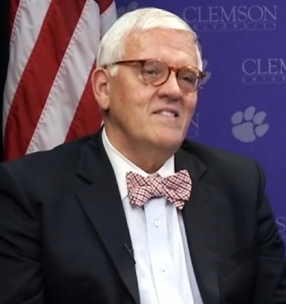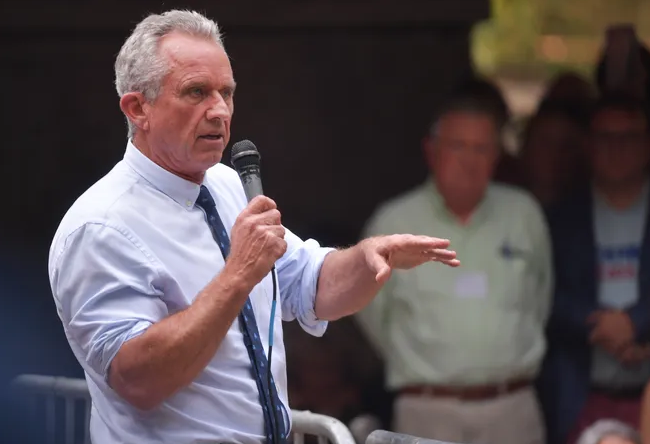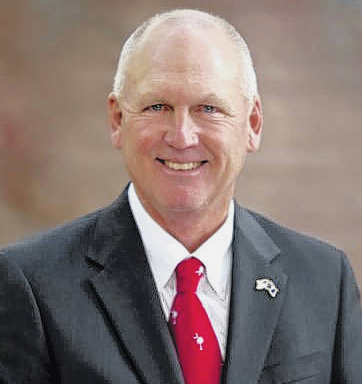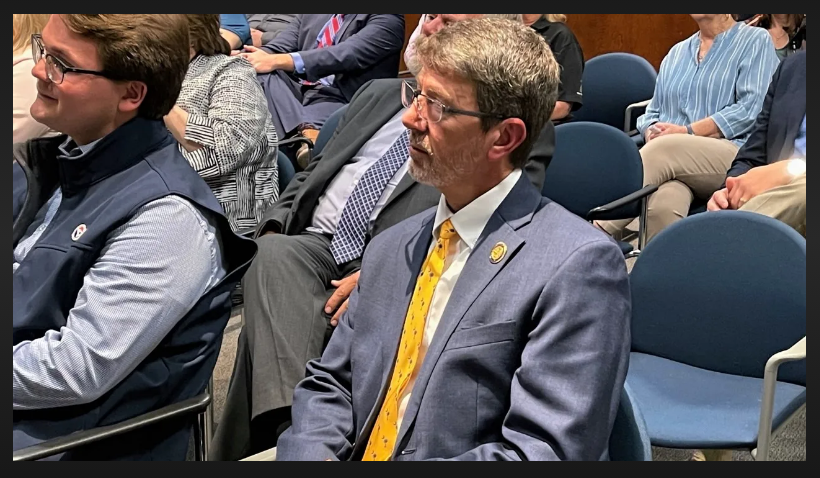SC GOP, Democrat voters can play spoiler in primaries. Is it enough to affect outcomes?
- Oops!Something went wrong.Please try again later.
- Oops!Something went wrong.Please try again later.
Thanks to South Carolina's open primaries, Democrat and Republican voters have the opportunity to play a spoiler role in the selection of each other's presidential nominee.
As it now stands, incumbent Democrat President Joe Biden is the overwhelming favorite to secure his party's nomination. Former President Donald Trump is the Republican Party's front-runner.
In South Carolina, voters who align with Democrats typically vote in that party's primary. The same holds true for Republicans.
But nothing prevents Democrats from voting in the Republican primary and vice versa. If enough people cross-vote, it could affect that primary's outcome. However, if a person votes in the Democratic primary, they cannot vote again in the Republican primary.
"I do think many Democrats will want to support Trump in the GOP primary," said David Woodard, a retired Clemson University political science professor. "As I see it, Biden can only beat one Republican, and that is Trump. So the people who hate the MAGA and Trump, the riots in Washington and his arrogance on television will go vote for him in the GOP primary."
Still, political observers say they don't think there will be enough cross-voters to change the outcome of the primary.
"Four years ago, conservative activists sought to influence the Democratic primary by crossing over to vote for Bernie Sanders over Joe Biden because they thought it would ultimately benefit Donald Trump," said Columbia-based Republican strategist Rob Godfrey. "The effort was a big failure as it was a bad idea, and Joe Biden won in the (primary) that propelled him to the nomination.
"I don't expect any similar efforts this year to be successful — not to mention the fact that I think Republican voters will be preoccupied with voting in their own competitive presidential primary that includes two candidates from their own home state," added Godfrey, who was deputy chief of staff for former Gov. Nikki Haley.
Haley and Sen. Tim Scott, both South Carolinians, are hoping for a strong showing among a crowded field in the state's Feb. 24 Republican primary.
In a red state where Republicans hold all major statewide offices and nearly all its congressional seats, Woodard said the GOP doesn't have much to worry about with cross-over voting.
"If you're a Democrat in South Carolina, you know you have no influence here," Woodard said. "In effect, the Democratic Party is dead in this state and can't even furnish candidates for most elections."

Robert F. Kennedy Jr. expecting votes across party lines
Meanwhile, Democrat Robert F. Kennedy Jr. is expecting to receive his fair share of cross-over votes from Republicans and Independents in the Democratic primary, slated by the Democratic National Committee to be the first in the nation on Feb. 3.
"This campaign is really a populist movement that unites left and right, Black and white, rural and urban and young and old against the elite. So I think you will see a big cross-over," said Trevor FitzGibbon, who works with the pro-Kennedy Super PAC called American Values 2024.
"People feel like corporations stole Washington, D.C. from the people and that Bobby is going to take it back. Bobby's surging in South Carolina and also in New Hampshire," FitzGibbon added, referring to a recent American Values 2024 poll that showed Biden leading Kennedy among likely voters in New Hampshire by a margin of 46% to 31%.

Kathryn Harvey, chairwoman of the Spartanburg County Democratic Party, said she expects cross-over voters in both primaries, but not enough to change the outcome.
"You'll likely see more Democrats voting in a Republican primary," she said. "If you're looking at the current pool (of GOP hopefuls), more people than not will come out to make sure Trump doesn't get elected. It's more of a not-Trump scenario."
Curt Smith, chairman of the Spartanburg County Republican party, said he supports a closed primary system, where voters register by party and can only vote in that party's primary.
"I do believe there is a hidden factor in South Carolina, that a lot of minorities do not support Mr. Biden — they are upset," Smith said. "Therefore there will probably be more Democratic turnout in the Republican primary to get what they want."
Abby Zilch, spokeswoman for the South Carolina Republican Party, said Republicans thinking of voting in the Democratic primary against Biden should be reminded that if they do so, they can't vote in the Republican primary.
"We are encouraging Republicans to vote in the Republican primary and our party's platform," Zilch said. "You only have one vote in the primary."
South Carolina is predominately red: Spartanburg County and SC are predominately Republican red. That wasn't always the case.
Efforts to close SC party primaries have failed
There have been many failed efforts in the state Legislature to make South Carolina a closed primary state.
The most recent one is from Republican state Sen. Rex Rice of Easley. His bill, S 403, and S 767 which he co-authored with GOP state Sen. Tom Corbin of Travelers Rest, would require voters to register with a party and not be allowed to vote in another party's primary.
The bills were filed earlier this year and failed to advance from the Senate Judiciary Committee.
A similar bill, H 3161, was filed in the state House in January, locally sponsored by Republican Reps. Bill Chumley of Reidville and Roger Nutt of Moore. It also failed to advance out of committee.
Rice, who represents a heavily Republican Pickens County, said he nearly lost in 2016 when Democrats voted in the Republican primary.
In that Republican Senate District 2 primary, incumbent Sen. Larry Martin failed to get over 50% to win outright, which forced a runoff. Martin got 6,284 votes, or 45.09%, and Rice got 4,641 votes, or 33.3%.
In the runoff, Rice got 6,022 votes, or 54.21%, to Martin's 5,087 votes, or 45.79%. Since no Democrat ran for that seat, Rice was declared the winner.

"I'm sure Democrats came out and voted against me," Rice said.
He said he understands it works both ways. In 2020, when Trump was the presumed GOP nominee without a Republican primary, Republicans voted in the Democratic primary to try and influence that outcome. That year, Biden won handily with 48.7% of the statewide primary vote and Bernie Sanders finished second with 19.77%.
Nutt said he believes the reason why bills never make it out of committee is because both parties fear they might lose representatives with closed primaries.

"In this county, we have a very strong majority of Republican voters," Nutt said. "A majority of the county races will typically be Republican candidates only, with no Democrat or third-party candidate in the race. So if you are a Democrat or another party member, and wanted to have a say in the election, your only choice is to vote in the Republican primaries.
"On the flip side, there are counties in this state where Republicans are not as strong as they are in the Upstate. In this case, the weaker Republican would need the votes of Democrats as well as Republicans to receive a majority of the votes," Nutt added. "This is why there is a split in the legislators in Columbia."
Meanwhile, Godfrey said both parties are content to deal with the current system, and that he doesn't see South Carolina becoming a closed primary state any time soon.
"Our state plays an incredibly unique and invaluable role in shaping history through the presidential primary process, as it works now," Godfrey said. "When the Republican primary makes its way to South Carolina this cycle, another record-breaking number of conservative voters will participate, and likely catapult the winner of the primary to the nomination."
Bob Montgomery covers Spartanburg County politics and growth & development. Reach him via email at bmontgomery@shj.com.
This article originally appeared on Herald-Journal: Republicans, Democrats could be spoilers in SC presidential primaries

